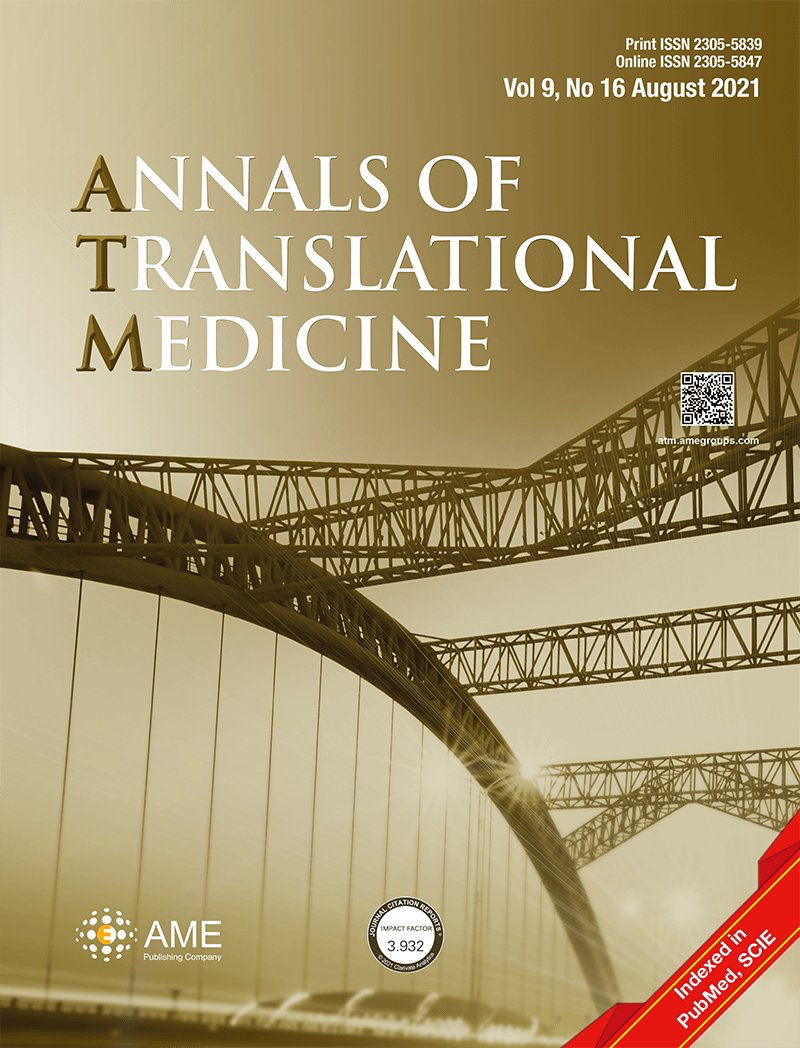Plaque
How to submit an article:
- Registered users can submit any published journal article that has a unique DOI (Digital Object Identifier) name or link to Research Hub.
- For example, you can paste the full DOI link:
https://doi.org/10.1109/5.771073or just the DOI name:10.1109/5.771073into the field above and click submit. - The person who is first to submit a valid article to Research Hub will forever be credited for it, and every article submission earns you +6 Research Points.
Published research studies are articles that present the findings of original research that has undergone a peer-review process and has been made publicly available in scholarly journals, books or other media.
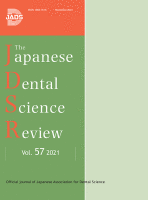
Impact of Green Tea (Camellia Sinensis) on periodontitis and caries. Systematic review and meta-analysis
2021 Nov Japanese Dental Science Review Mazur M, Ndokaj A, Jedlinski M, Ardan R, Bietolini S, Ottolenghi L
Systematic Review Meta-Analysis Oral Health Green TeaGreen tea treatment has shown potential in improving oral hygiene and gingival health, and reducing periodontitis and caries.
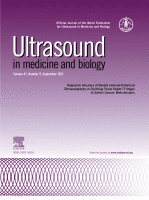
Three-dimensional ultrasound assessment of effects of therapies on carotid atherosclerosis using vessel wall thickness maps
2021 Sep Ultrasound in Medicine & Biology Zhao Y, Spence JD, Chiu B
Randomised Controlled Trial Ultrasound Atherosclerosis PomegranateA new method for assessing the effects of therapies on atherosclerosis shows that pomegranate juice/extract has a significant influence on carotid vessel-wall-plus-plaque thickness.
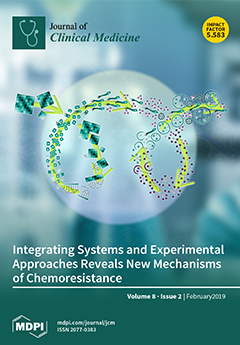
Evidence Map of Cupping Therapy
2021 Apr 17 Journal of Clinical Medicine Choi TY, Ang L, Ku B, Jun JH, Lee MS
Cupping has been applied in a variety of clinical areas, and systematic reviews in a few of these areas have demonstrated statistically significant benefits. The evidence map provides a visual overview of cupping research volume and findings. Evidence mapping can facilitate the transfer of knowledge from researchers to policymakers and promote research on musculoskeletal pain (such as low back pain, neck pain, and knee osteoarthritis) and skin disease (plaque psoriasis).
Cupping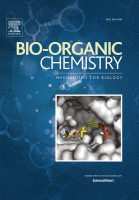
Inhibition of Aβ aggregates in Alzheimer’s disease by epigallocatechin and epicatechin-3-gallate from green tea
2020 Dec Bioorganic Chemistry Chen T, Yang Y, Zhu S, Lu Y, Zhu L, Wang Y, et al.
Experimental Study Animal Study Green Tea Alzheimer's Disease EGCGGreen tea polyphenolic compounds, (-)-epigallocatechin (EGC) and (-)-epicatechin-3-gallate (ECG), can diminish harmful Alzheimer's disease linked Aβ aggregates and ameliorate symptoms.

Moving cupping therapy for plaque psoriasis
2020 Oct 09 Medicine Xing M, Ding X, Zhang J, Kuai L, Ru Y, Sun X, et al.
Systematic Review Meta-Analysis Cupping PsoriasisMoving cupping therapy, alone or coupled with other treatments, could effectively alleviate symptoms of plaque psoriasis with minimal side effects.
Research insights are moderated by the Research Hub team and offer an at-a-glance overview of interesting research findings.

2021 Japanese Dental Science Review
Green tea treatment has shown potential in improving oral hygiene and gingival health, and reducing periodontitis and caries.
Systematic Review Green Tea Oral Health
Impact of Green Tea (Camellia Sinensis) on periodontitis and caries. Systematic review and meta-analysis
Mazur M, Ndokaj A, Jedlinski M, Ardan R, Bietolini S, Ottolenghi L

2021 Ultrasound in Medicine & Biology
A new method for assessing the effects of therapies on atherosclerosis shows that pomegranate juice/extract has a significant influence on carotid vessel-wall-plus-plaque thickness.
Randomised Controlled Trial Atherosclerosis Pomegranate Ultrasound
Three-dimensional ultrasound assessment of effects of therapies on carotid atherosclerosis using vessel wall thickness maps
Zhao Y, Spence JD, Chiu B

2020 Bioorganic Chemistry
Green tea polyphenolic compounds, (-)-epigallocatechin (EGC) and (-)-epicatechin-3-gallate (ECG), can diminish harmful Alzheimer's disease linked Aβ aggregates and ameliorate symptoms.
Experimental Study Alzheimer's Disease EGCG Green Tea
Inhibition of Aβ aggregates in Alzheimer’s disease by epigallocatechin and epicatechin-3-gallate from green tea
Chen T, Yang Y, Zhu S, Lu Y, Zhu L, Wang Y, et al.

2020 Medicine
Moving cupping therapy, alone or coupled with other treatments, could effectively alleviate symptoms of plaque psoriasis with minimal side effects.
Systematic Review Cupping Psoriasis
Moving cupping therapy for plaque psoriasis
Xing M, Ding X, Zhang J, Kuai L, Ru Y, Sun X, et al.
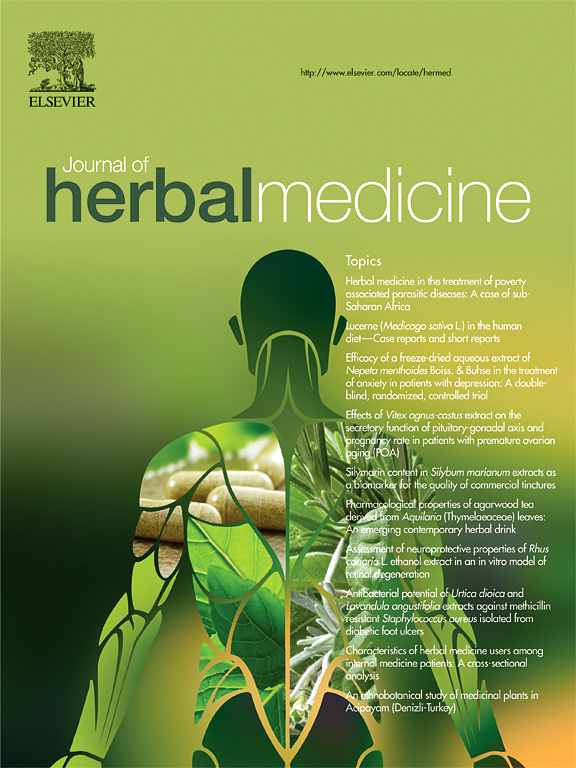
2020 Journal of Herbal Medicine
Green tea catechins-containing mouthwash may potentially be a practical alternative to chlorhexidine due to its efficacy in plaque reduction and minimal side effects.
Systematic Review Gingivitis Green Tea
The Effect of Green Tea on plaque and gingival inflammation: A systematic review
Gartenmann SJ, Steppacher SL, von Weydlich Y, Heumann C, Attin T, Schmidlin PR
Review Articles
Review articles summarise and critically evaluate the current state of research on a specific topic or field by synthesising multiple primary research studies.

Impact of Green Tea (Camellia Sinensis) on periodontitis and caries. Systematic review and meta-analysis
2021 Nov Japanese Dental Science Review Mazur M, Ndokaj A, Jedlinski M, Ardan R, Bietolini S, Ottolenghi L
Systematic Review Meta-Analysis Oral Health Green TeaGreen tea treatment has shown potential in improving oral hygiene and gingival health, and reducing periodontitis and caries.

Moving cupping therapy for plaque psoriasis
2020 Oct 09 Medicine Xing M, Ding X, Zhang J, Kuai L, Ru Y, Sun X, et al.
Systematic Review Meta-Analysis Cupping PsoriasisMoving cupping therapy, alone or coupled with other treatments, could effectively alleviate symptoms of plaque psoriasis with minimal side effects.

The Effect of Green Tea on plaque and gingival inflammation: A systematic review
2020 Jun Journal of Herbal Medicine Gartenmann SJ, Steppacher SL, von Weydlich Y, Heumann C, Attin T, Schmidlin PR
Systematic Review Plaque Gingivitis Green TeaGreen tea catechins-containing mouthwash may potentially be a practical alternative to chlorhexidine due to its efficacy in plaque reduction and minimal side effects.

Lycopene and Vascular Health
2018 May 23 Frontiers in Pharmacology Mozos, I., Stoian, D., Caraba, A., et al.
Review ArticleLycopene may improve vascular function and contributes to the primary and secondary prevention of cardiovascular disorders.
Clinical Trials
Clinical trials are research studies that involve people and are conducted to evaluate the safety and efficacy of new treatments or interventions, such as drugs, medical devices, or behavioural therapies.
Study Protocols
Published study protocols are detailed plans that outline the objectives, methodology, statistical analyses, and organisation of a research study that have been made publicly available for others to review and use as a reference.
Presentation Slides

Systematic Review
Green tea treatment has shown potential in improving oral hygiene and gingival health, and reducing periodontitis and caries.
Mazur M, Ndokaj A, Jedlinski M, Ardan R, Bietolini S, Ottolenghi L

Randomised Controlled Trial
A new method for assessing the effects of therapies on atherosclerosis shows that pomegranate juice/extract has a significant influence on carotid vessel-wall-plus-plaque thickness.
Zhao Y, Spence JD, Chiu B

Experimental Study
Green tea polyphenolic compounds, (-)-epigallocatechin (EGC) and (-)-epicatechin-3-gallate (ECG), can diminish harmful Alzheimer's disease linked Aβ aggregates and ameliorate symptoms.
Chen T, Yang Y, Zhu S, Lu Y, Zhu L, Wang Y, Wang X

Systematic Review
Moving cupping therapy, alone or coupled with other treatments, could effectively alleviate symptoms of plaque psoriasis with minimal side effects.
Xing M, Ding X, Zhang J, Kuai L, Ru Y, Sun X, Ma T, Miao X, Liu L, Wang Y, Li B, Li X

Systematic Review
Green tea catechins-containing mouthwash may potentially be a practical alternative to chlorhexidine due to its efficacy in plaque reduction and minimal side effects.
Gartenmann SJ, Steppacher SL, von Weydlich Y, Heumann C, Attin T, Schmidlin PR

Review Article
Lycopene may improve vascular function and contributes to the primary and secondary prevention of cardiovascular disorders.
Mozos, I., Stoian, D., Caraba, A., Malainer, C., Horbańczuk, J. O., & Atanasov, A. G
Executive Summary
Write an executive summary in the form of a blog article on the topic of "Research into Chinese medicine treatment for Plaque" summarising the research below and using language that can be easily understood by patients and avoiding medical jargon using a professional and caring tone of voice.
Write an executive summary in the form of a blog article on the topic of "Researched Chinese medicine treatments for Plaque" summarising the research below in an objective and easy to understand way, and using language that can be easily understood by patients. Group the article into Chinese medicine treatments first, followed by nutrition and other treatments. Avoid using medical jargon and use a professional and caring tone of voice.
Write me a concise but easy to understand executive summary on the topic of "Chinese medicine treatments for Plaque" based on the following research that I will give you. Your summary should be 2 paragraphs long in Australian English spelling and include references to the studies.
A Systematic Review published in 2021 in the journal Japanese Dental Science Review found that Green tea treatment has shown potential in improving oral hygiene and gingival health, and reducing periodontitis and caries. The methodology of this research consisted of systematic literature review focusing on clinical trials that evaluated the impact of green tea on managing periodontitis and caries. Various databases including MedLine (PubMed), Scopus, and the Cochrane Library were utilized for gathering relevant studies. Eighteen suitable studies were selected, encompassing 870 subjects. The results reveal a noticeable positive effect from green tea treatment. This effect was realized in the reduction of gingival index, plaque index, gingival bleeding index and bleeding on probing when compared to a control group. It was also noted that when considered among chlorhexidine control groups, green tea showed a slight negative effect. There was additionally a significant positive effect seen in the reduction of clinical attachment level and probing pocket depth with green tea treatment.
A Randomised Controlled Trial published in 2021 in the journal Ultrasound in Medicine & Biology found that A new method for assessing the effects of therapies on atherosclerosis shows that pomegranate juice/extract has a significant influence on carotid vessel-wall-plus-plaque thickness. The study utilized a tracked weighted average of carotid vessel-wall-plus-plaque thickness change in patients who've been randomly assigned to consume pomegranate juice/extract or placebo. Three-dimensional ultrasound images of patients' arteries were captured initially and a year later. These images were reassembled into three-dimensional maps and then projected onto a carotid template to create two-dimensional maps. A weight was calculated at every point on the two-dimensional map to spotlight the anatomic locations where plaque progression or regression was likely. The method used accounted for misalignment within a single subject and across various subjects to deliver a more precise assessment. The results showed a remarkable difference between patients who consumed pomegranate juice/extract and those who took placebo, based on the weighted average of vascular wall thickness change, observed from the two-dimensional maps with aligned correspondence. Thus, the study concluded that pomegranate juice/extract significantly impacts atherosclerosis, underscoring its value in the context of therapy. This methodical approach also significantly heightened the cost-effectiveness of preliminary trials for new atherosclerosis therapies.
A Experimental Study published in 2020 in the journal Bioorganic Chemistry found that Green tea polyphenolic compounds, (-)-epigallocatechin (EGC) and (-)-epicatechin-3-gallate (ECG), can diminish harmful Alzheimer's disease linked Aβ aggregates and ameliorate symptoms. Green tea compounds EGC and ECG were tested for their effects on Cu/Zn-induced or self-assembled Aβ aggregation involved in Alzheimer's disease. To do so, a combination of thioflavine T fluorescent spectrometry, inductively coupled plasma mass spectrometry, UV-Vis spectroscopy, transmission electron microscopy, silver staining, immunohistochemistry, and immunofluorescence assays were utilized. Findings indicate that these compounds bind mildly to Cu and Zn and reduce their caused or self-assembled Aβ aggregates. Moreover, these compounds were shown to manage neurotoxicity in mouse neuroblastoma Neuro-2a cells by decreasing the production of reactive oxygen species (ROS). From the findings, the EGC and ECG in green tea showed potential in reducing the toxicity of Aβ oligomers and fibrils which are heavily linked to Alzheimer's disease. Notably, ECG has the ability to traverse the blood-brain barrier and reduce Aβ plaques within the mouse brain, showcasing its potential for neuron protection. This study highlights the potential of green tea - specifically, its polyphenolic compounds - in the prevention or reduction of Alzheimer's disease symptoms.
A Systematic Review published in 2020 in the journal Medicine found that Moving cupping therapy, alone or coupled with other treatments, could effectively alleviate symptoms of plaque psoriasis with minimal side effects. The researchers conducted an exhaustive review of various databases up until March 2020, including PubMed, Embase, and others. The review focused on randomized controlled trials concerning the treatment of plaque psoriasis using moving cupping therapy, either alone or combined with Chinese herbs or conventional Western medicine. The effects obtained from these trials were contrasted with outcomes from placebo-controlled, pharmaceutical medication-based or Chinese herb-based treatments. They also compared the frequency of the moving cupping treatment. After a meticulous selection process, sixteen trials involving 1164 participants met the entry criteria. The meta-analysis demonstrated that those who underwent moving cupping therapy exhibited significant symptom improvement compared to those who did not. Additionally, the combination of moving cupping and pharmaceutical medications proved to be more effective than pharmaceutical treatments alone. The recurring rate of psoriasis also substantially dropped due to cupping therapy. While moving cupping reduced some blood markers more effectively than conventional medicine did, it didn't show distinct advantages in the visual analogue score. Few transient side effects like redness, itching, and local skin burning were reported associated with moving cupping therapy.
A Systematic Review published in 2020 in the journal Journal of Herbal Medicine found that Green tea catechins-containing mouthwash may potentially be a practical alternative to chlorhexidine due to its efficacy in plaque reduction and minimal side effects. The methodology involved an exhaustive literature review of several electronic databases, such as CINAHL, Cochrane Library, MEDLINE, PubMed and Scopus, up until January 2017. This review adhered to the PRISMA criteria, centring the research question around the impact of green tea catechins-containing mouthwash on plaque accumulation and gingival inflammation in patients with gingivitis. Out of the 187 titles identified this way, five were fit for meta-analysis, the subject matter primarily revolving around an Asian population. The results indicated that both green tea and chlorhexidine (CHX) significantly outperformed a placebo in reducing Plaque Index (PI), with no substantial contrast between the CHX and green tea groups, both in terms of the endpoint and the change from the beginning of the study to its conclusion. However, only minor side effects were associated with the green tea mouthwash. Contrarily to chlorhexidine, this aspect might make green tea mouthwash more suitable for prolonged use. Despite some heterogeneity in the data and potential bias risks, green tea mouthwash remains an interesting, viable alternative worth considering.
A Review Article published in 2018 in the journal Frontiers in Pharmacology found that Lycopene may improve vascular function and contributes to the primary and secondary prevention of cardiovascular disorders. The main activity profile of lycopene includes antiatherosclerotic, antioxidant, anti-inflammatory, antihypertensive, antiplatelet, anti-apoptotic, and protective endothelial effects, the ability to improve the metabolic profile, and reduce arterial stiffness. In this context, lycopene has been shown in numerous studies to exert a favorable effect in patients with subclinical atherosclerosis, metabolic syndrome, hypertension, peripheral vascular disease, stroke and several other cardiovascular disorders, although the obtained results are sometimes inconsistent, which warrants further studies focusing on its bioactivity.
Moderation Tools
Topic
Sign In
Users not signed in are limited to viewing the 5 most recent items of content.
